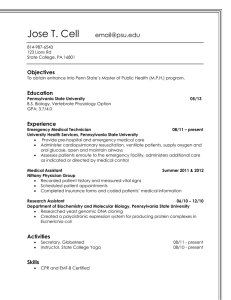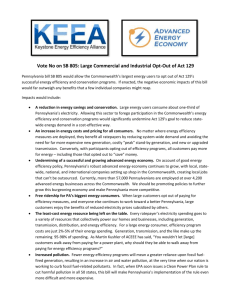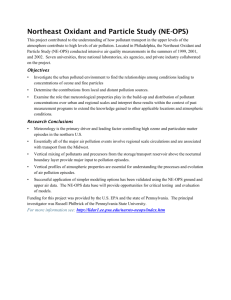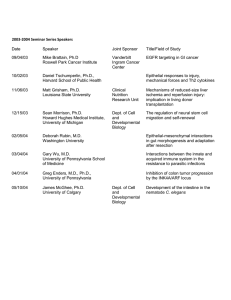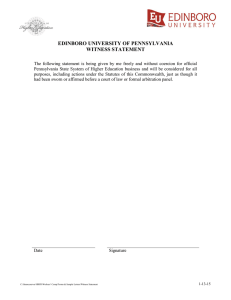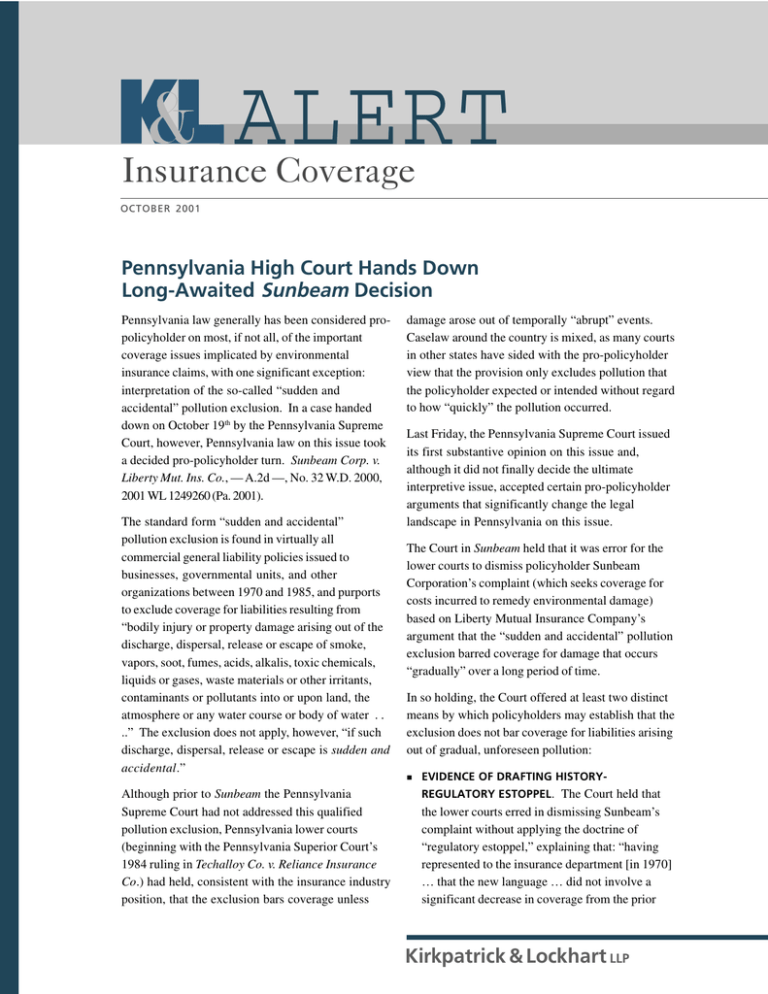
ALERT
Insurance Coverage
OCTOBER 2001
Pennsylvania High Court Hands Down
Long-Awaited Sunbeam Decision
Pennsylvania law generally has been considered propolicyholder on most, if not all, of the important
coverage issues implicated by environmental
insurance claims, with one significant exception:
interpretation of the so-called “sudden and
accidental” pollution exclusion. In a case handed
down on October 19th by the Pennsylvania Supreme
Court, however, Pennsylvania law on this issue took
a decided pro-policyholder turn. Sunbeam Corp. v.
Liberty Mut. Ins. Co., — A.2d —, No. 32 W.D. 2000,
2001 WL 1249260 (Pa. 2001).
The standard form “sudden and accidental”
pollution exclusion is found in virtually all
commercial general liability policies issued to
businesses, governmental units, and other
organizations between 1970 and 1985, and purports
to exclude coverage for liabilities resulting from
“bodily injury or property damage arising out of the
discharge, dispersal, release or escape of smoke,
vapors, soot, fumes, acids, alkalis, toxic chemicals,
liquids or gases, waste materials or other irritants,
contaminants or pollutants into or upon land, the
atmosphere or any water course or body of water . .
..” The exclusion does not apply, however, “if such
discharge, dispersal, release or escape is sudden and
accidental.”
Although prior to Sunbeam the Pennsylvania
Supreme Court had not addressed this qualified
pollution exclusion, Pennsylvania lower courts
(beginning with the Pennsylvania Superior Court’s
1984 ruling in Techalloy Co. v. Reliance Insurance
Co.) had held, consistent with the insurance industry
position, that the exclusion bars coverage unless
damage arose out of temporally “abrupt” events.
Caselaw around the country is mixed, as many courts
in other states have sided with the pro-policyholder
view that the provision only excludes pollution that
the policyholder expected or intended without regard
to how “quickly” the pollution occurred.
Last Friday, the Pennsylvania Supreme Court issued
its first substantive opinion on this issue and,
although it did not finally decide the ultimate
interpretive issue, accepted certain pro-policyholder
arguments that significantly change the legal
landscape in Pennsylvania on this issue.
The Court in Sunbeam held that it was error for the
lower courts to dismiss policyholder Sunbeam
Corporation’s complaint (which seeks coverage for
costs incurred to remedy environmental damage)
based on Liberty Mutual Insurance Company’s
argument that the “sudden and accidental” pollution
exclusion barred coverage for damage that occurs
“gradually” over a long period of time.
In so holding, the Court offered at least two distinct
means by which policyholders may establish that the
exclusion does not bar coverage for liabilities arising
out of gradual, unforeseen pollution:
EVIDENCE OF DRAFTING HISTORYREGULATORY ESTOPPEL. The Court held that
the lower courts erred in dismissing Sunbeam’s
complaint without applying the doctrine of
“regulatory estoppel,” explaining that: “having
represented to the insurance department [in 1970]
… that the new language … did not involve a
significant decrease in coverage from the prior
Kirkpatrick & Lockhart LLP
always relevant and admissible in construing
commercial contracts and does not depend on any
obvious ambiguity in the words of the contract,”
and held that Sunbeam had “properly pleaded that
the comprehensive general liability policies at
issue do indeed provide coverage for both gradual
and abrupt pollution or contamination, so long as
it was unexpected and unintended…. ”
language, the insurance industry will not be heard
to assert the opposite position when claims are
made by the insured policyholders….
Accordingly, it was error to dismiss the complaint
without applying the doctrine of regulatory
estoppel.”
EVIDENCE OF INDUSTRY CUSTOM OR USAGE:
Turning to Sunbeam’s argument “that custom in
the industry or usage in the trade supports the
argument that the words ‘sudden and accidental’”
“means ‘unexpected and unintended’ in this
insurance context,” the Court affirmed that
“sudden in the industry or usage in the trade is
FOR MORE INFORMATION about these issues, please consult
any of the Kirkpatrick & Lockhart’s office contacts listed below:
Pittsburgh
Washington
Boston
Los Angeles
Miami
Newark
New York
Thomas M. Reiter
Matthew Jacobs
John Edwards
David P. Schack
Daniel A. Casey
Anthony P. La Rocco
Eugene Licker
412.355.8274
202.778.9393
617.261.3123
310.552.5061
305.539.3324
973.848.4014
212.536.3916
treiter@kl.com
mjacobs@kl.com
jedwards@kl.com
dschack@kl.com
dcasey@kl.com
alarocco@kl.com
elicker@kl.com
The Insurance Coverage practice group at Kirkpatrick &
Lockhart Nicholson Graham LLP offers an international
policyholder-oriented practice on behalf of Fortune 500
and numerous other policyholder clients. Its lawyers have
authored Policyholder’s Guide to the Law of Insurance
Coverage and edited the Journal of Insurance Coverage.
For further information, please consult our website at
www.klng.com.
Accordingly, the Court reversed the two lower court
rulings that dismissed lawsuits against Liberty
Mutual and remanded the case for further
proceedings consistent with the Court’s opinion.
One day prior to Sunbeam, the Court issued its
decision in Rohm and Haas, another environmental
insurance case, in which it considered whether the
Superior Court had erred in overturning the trial
court’s decision to enter judgment in favor of
policyholder Rohm & Haas, notwithstanding a jury
verdict in favor of its insurers with respect to fraud/
misrepresentation, late notice, and “known loss”
defenses. Three justices voted to affirm the Superior
Court’s decision on all three defenses. Three justices
voted to reverse. Finally, one justice, Justice Nigro,
voted to affirm the Superior Court’s decision on the
fraud/misrepresentation defense, but declined to
address the late notice and “known loss” defenses.
SM
Kirkpatrick & Lockhart LLP
Challenge us.
SM
BOSTON
●
DALLAS
●
HARRISBURG
●
LOS ANGELES
●
MIAMI
●
NEWARK
●
NEW YORK
●
PITTSBURGH
●
SAN FRANCISCO
●
WASHINGTON
.........................................................................................................................................................
This publication/newsletter is for informational purposes and does not contain or convey legal advice. The information herein
should not be used or relied upon in regard to any particular facts or circumstances without first consulting with a lawyer.
© 2001 KIRKPATRICK & LOCKHART LLP. ALL RIGHTS RESERVED.

